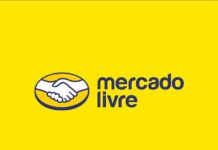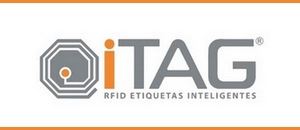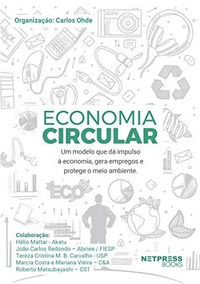Paula Valerio
The ESG agenda (Environmental and Social Governance) has long ceased to be a topic of debate and has become part of companies’ action plans. This is because the social, governance and, mainly, environmental impact generated by industries became more evident for the global market. Furthermore, such measures have already resulted in real changes in the organizational business culture.
Proof of this is the important step taken by the European Commission with the creation and legislative implementation of the Digital Product Passport (DPP). The use of this new law is fundamental for the growth of the sustainability agenda worldwide.

Despite being a current rule, for the time being, only in Europe, I believe it deserves our attention. Therefore, I will explain what DPP is, what is its relationship with smart packaging and why this concept should arrive here soon.
It is a technological mechanism for collecting and sharing product data throughout its lifecycle. This information is useful for sustainability, environmental preservation and product recycling. In order to be used, this data – such as raw material, manufacturing process and even the disposal of the item at the end of its useful life – is registered in its respective supply chains.
The European Committee created the Circular Economy Action Plan (CEAO), which came into force in March 2020. In turn, this plan is directly related to the adoption of the DPP and its proposed use at the government level. This is an initiative, among many others, which includes a set of environmental proposals from the European Ecological Pact. Such measures are intended to seek sustainable development for future generations, while combating climate change.
In this way, the idea is to propose new rules that make almost all physical goods circulating in the European Union into more ecological, circular and energy efficient items, throughout their entire life cycle.
The initial adhesion was in Europe, which began the transition in 2019. The forecast is that, by 2024, the first implementations will take place. This is a series of regulations that aim to promote the circular economy with transparency and sustainability throughout the production chain.
For companies, the Digital Product Passport offers the possibility to reduce operating costs in the long term, from the tracking and information collected throughout the supply chain. At the same time, the initiative has an impact on reducing the carbon footprint, which can be transformed into carbon credits and even generate new market value.
On the other hand, consumers also benefit from such a movement. Since they will have more sustainable products and more transparent companies in relation to what they put on the shelves.
And the sharing of such data has become paramount. A survey was carried out by Two Sides, a non-profit organization that addresses issues related to the market for products printed on paper, and 52% of consumers interviewed consider that the information contained on the package influences the purchase decision.

Registering and encrypting product data using a digital product passport is a highly accepted solution in companies, as it impacts and involves multiple stakeholders. DPP is able to deliver far-reaching benefits and value to consumers, government and even recyclers.
New business model: with a focus on product longevity, the DPP opens up a new business opportunity that unlocks flows and drives company growth. In addition, DPP can serve as an additional marketing, sales, and business operations channel. After all, the information and data collected can be used for new business actions, creation of new services and an enriched consumer experience.
Increased consumer confidence: By recording all product lifecycle events, companies can show the consumer the composition of their product and, consequently, offer a more transparent view of authenticity. This increases shopper brand confidence and can maximize retention and loyalty.
Customer protection: ensures that raw materials and the manufacturing process are within regulations such as ISO. This makes companies protect their customers against counterfeit products. In addition, the brand mitigates risks related to negative issues of laws and regulations in each country, product recalls and incidents caused by product defects.
Compliance assurance: in an eventual DPP application, the company would have a source of information – which can be tracked and easily accessed – making companies capable of monitoring their compliance in real time.
Verify Compliance: By utilizing a DPP framework, policy makers will be able to track, review and ensure business compliance with sustainability initiatives. Driving sustainability: By creating an immutable platform for recording sustainability data and enforcing established policies, companies and organizations will be forced to follow guidelines. Especially when your ‘green performance’ is fully open and transparent.
Buyer confidence: Digital passports offer consumers the possibility to understand the full life cycle of products.
Maximized product value: Information made available by DPP reassures the consumer that the purchased item is legitimate – enabling them to avoid defective or counterfeit products.
Recognize the carbon footprint: Depending on the type of product, it is possible to collect accurate data on energy consumption and environmental impact of the company in question.
Smart packaging technologies are the best way to bring the Digital Product Passport to market. After all, through specific solutions, such as reading the barcode or QR Code printed on the product, it is possible to access a parallel – and infinite – universe of information.
In addition, smart packaging has become a means of filling gaps in the production chain and offering a more efficient process as a whole.
As the Digital Product Passport is a global regulation – and we know that ESG issues are constantly being strengthened – we can say that, more than complying with a regulation, it is fundamental that the Brazilian market understands the benefits that the maturation of the packaging concept smart can bring to the entire ecosystem.
So, here’s a thought: have you ever thought about integrating smart packaging into your business? If not, my tip is to take the opportunity now to understand this concept and, above all, implement improvements while there is still time.
Paula Valerio is an executive at Sincpress, the first center of excellence in smart packaging in Latin America



















